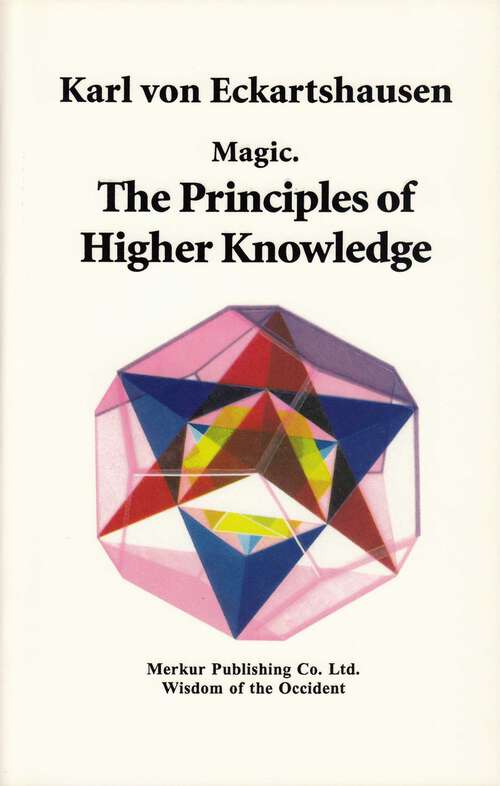Magic: The Principles of Higher Knowledge
By:
Sign Up Now!
Already a Member? Log In
You must be logged into Bookshare to access this title.
Learn about membership options,
or view our freely available titles.
- Synopsis
- Words are means by which people communicate, and the words can constitute a language. To communicate, you have to have an under¬standing of the words you use and that is where the problem arises. The meanings of most of the words we use were learned in context with other words, and from this we assume that we know the meaning of a word. When you do this, and your understanding of a word is the same as its real meaning, no problem arises. However, when what you assume the meaning of a word to be does not agree with the true meaning of the word, then misunderstanding is the result. It is most rewarding to understand the true meaning of words. The best sources for obtaining this information are dictionaries, encyclopaedias and dictionaries in other languages. As an example, the word &“principle&” is often used. Have you ever looked it up in a dictionary to find out if your understanding of this word is the same as what it really means? Many times, of course, your understanding is correct, but be certain to avoid misunderstand¬ing. When you read this book, your understanding of all the words are of the utmost import¬ance. The meaning or meanings of the word &“principle&” include: 1. Chief; 2. Beginning; 3. the Ultimate Source; 4. Origin; 5. The Law of nature by which a thing operates; 6. An Essential Element….. Many people in the old days believed in spirits, demons, angels, and so on. Even today some believe in this, while others do not. Primitive civilizations believed that thunder, storms and rain were caused by the gods. One question, however, always remains unan¬swered. In a laboratory experiment, ingredients have to be combined to achieve certain results. In a laboratory, this is done by people. Who does it in nature? These questions and more are all addressed by Karl von Eckartshausen (1752-1803) because universal truths and principles are timeless and do not change from century to century.Words are means by which people communicate, and the words can constitute a language. To communicate, you have to have an under¬standing of the words you use and that is where the problem arises. The meanings of most of the words we use were learned in context with other words, and from this we assume that we know the meaning of a word. When you do this, and your understanding of a word is the same as its real meaning, no problem arises. However, when what you assume the meaning of a word to be does not agree with the true meaning of the word, then misunderstanding is the result. It is most rewarding to understand the true meaning of words. The best sources for obtaining this information are dictionaries, encyclopaedias and dictionaries in other languages. As an example, the word &“principle&” is often used. Have you ever looked it up in a dictionary to find out if your understanding of this word is the same as what it really means? Many times, of course, your understanding is correct, but be certain to avoid misunderstand¬ing. When you read this book, your understanding of all the words are of the utmost import¬ance. The meaning or meanings of the word &“principle&” include: 1. Chief; 2. Beginning; 3. the Ultimate Source; 4. Origin; 5. The Law of nature by which a thing operates; 6. An Essential Element….. Many people in the old days believed in spirits, demons, angels, and so on. Even today some believe in this, while others do not. Primitive civilizations believed that thunder, storms and rain were caused by the gods. One question, however, always remains unan¬swered. In a laboratory experiment, ingredients have to be combined to achieve certain results. In a laboratory, this is done by people. Who does it in nature? These questions and more are all addressed by Karl von Eckartshausen (1752-1803) because universal truths and principles are timeless and do not change from century to century.
- Copyright:
- 2021
Book Details
- Book Quality:
- Publisher Quality
- Book Size:
- 316 Pages
- ISBN-13:
- 9781885928368
- Publisher:
- New Leaf Distributing
- Date of Addition:
- 08/05/25
- Copyrighted By:
- Franca Gallo
- Adult content:
- No
- Language:
- English
- Has Image Descriptions:
- No
- Categories:
- Nonfiction, Health, Mind and Body, Religion and Spirituality
- Reading Age:
- 22 and up
- Submitted By:
- Bookshare Staff
- Usage Restrictions:
- This is a copyrighted book.
- Translator:
- G. Hanswille
